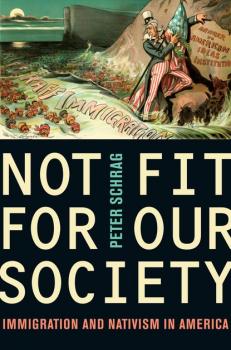Peter Schrag
Список книг автора Peter SchragNot Fit for Our Society
In a book of deep and telling ironies, Peter Schrag provides essential background for understanding the fractious debate over immigration. Covering the earliest days of the Republic to current events, Schrag sets the modern immigration controversy within the context of three centuries of debate over the same questions about who exactly is fit for citizenship. He finds that nativism has long colored our national history, and that the fear—and loathing—of newcomers has provided one of the faultlines of American cultural and political life. Schrag describes the eerie similarities between the race-based arguments for restricting Irish, German, Slav, Italian, Jewish, and Chinese immigrants in the past and the arguments for restricting Latinos and others today. He links the terrible history of eugenic «science» to ideas, individuals, and groups now at the forefront of the fight against rational immigration policies. <i>Not Fit for Our Society </i>makes a powerful case for understanding the complex, often paradoxical history of immigration restriction as we work through the issues that inform, and often distort, the debate over who can become a citizen, who decides, and on what basis.
California Fights Back
Veteran journalist Peter Schrag argues that California's role in the era of Donald Trump is twofold: to act as a leader in the resistance to the current administration, and to be held up as an alternative to the course being pursued in Washington. Given the Democratic Party's stronghold on all statewide elected offices and legislature, it isn't surprising that California has become a beacon of progressivism. But this is hardly an inevitability. California was almost where much of the GOP wants to take the nation today, leading the country in tax revolt, passage of the Three Strikes criminal sentencing law, and virtual prohibition of bilingual education in public schools. Schrag points to the state's shifting demographics and the erosion of the Republican Party in the wake of Proposition 187 as two major reasons behind California's shift to the left. It is particularly pertinent, then, that a state that formerly espoused these values now negotiates with other nations on climate control, asks its agents not to sweep courthouses in search of people to deport, and has approved major tax increases. <i>California Fights Back</i> gives proof that things can be better, and raises the possibility of this becoming the story of other states.


